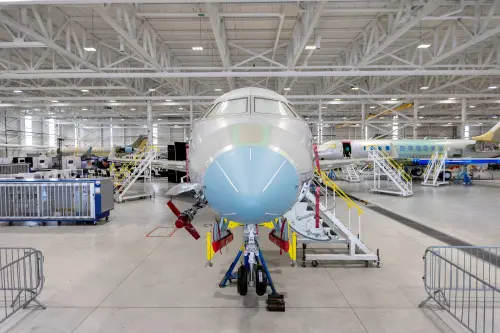Tariffs implemented by the U.S. and other countries in response have led some business jet buyers to expedite deliveries or include protective clauses in contracts, anticipating higher costs for aircraft materials, according to industry experts.
Canada and the European Union recently imposed retaliatory tariffs on the United States following the White House's tariffs on imported steel and aluminum, essential materials in aircraft manufacturing.
While major jet manufacturers like Boeing and Airbus remain optimistic about production, the looming tariffs have introduced uncertainties for investors and buyers in the aviation sector. Notably, Bombardier refrained from providing guidance this year due to the tariff threat.
Amanda Applegate, a partner at Soar Aviation Law, noted an uptick in buyers adding protective clauses to shield against potential tariff impacts. She mentioned instances where buyers rushed transactions to avoid increased costs.
DeLuca of Harper Meyer highlighted cases of rushed transactions to prevent tariff complications. She shared an example of a U.S. buyer attempting to back out of a deal with a non-U.S. seller for a Canadian aircraft based abroad.
A Bombardier spokesperson assured that their compliance with the U.S.-Mexico-Canada trade agreement allows for tariff-free plane deliveries within the U.S. market. However, an impending end to the U.S. tariff exemption on USMCA-compliant goods could impact this.
Concerns have been raised by industry groups and associations over potential disruptions in the aviation supply chain due to tariffs affecting critical parts production. Airbus CEO Faury acknowledged supply chain disruptions without providing specifics.
Despite these concerns, some U.S. aerospace suppliers have not yet experienced significant price fluctuations due to tariffs. One supplier mentioned advanced material ordering, with no notable price shifts in steel or aluminum.
AerCap CEO Aengus Kelly raised alarms about a potential $40 million increase in the price of a Boeing 787 plane under a worst-case tariff scenario. Boeing did not immediately comment on the matter.
